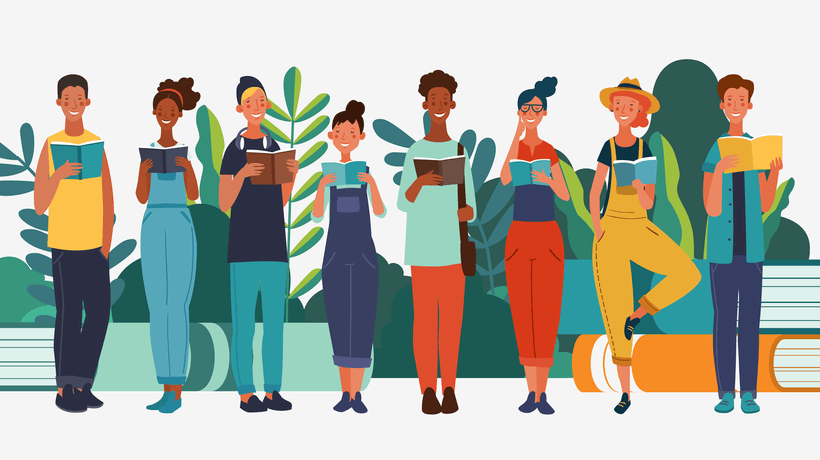Cultural learning through immersive travel has emerged as a transformative approach in education, enriching study programs by providing students with firsthand experiences of diverse cultures. This method goes beyond traditional classroom learning, allowing students to engage with different societies, languages, and customs. This exploration delves into how cultural learning enhances study programs through immersive travel, examining its benefits, challenges, and best practices.
The Importance of Cultural Learning

1. Broadening Perspectives
Cultural learning helps students develop a broader worldview by exposing them to different ways of life. Key benefits include:
- Understanding Diversity: Students gain insights into various cultural practices, beliefs, and values, fostering empathy and respect for differences.
- Global Awareness: Exposure to global issues and perspectives enhances students’ understanding of interconnectedness in today’s world.
2. Language Acquisition
Immersive travel provides an excellent opportunity for language learning. Benefits include:
- Practical Application: Students can practice language skills in real-life contexts, improving their fluency and comprehension.
- Cultural Nuances: Learning a language in its cultural context helps students understand idiomatic expressions, customs, and social norms.
3. Personal Growth
Travel experiences contribute to personal development, equipping students with essential life skills. Key aspects include:
- Adaptability: Navigating new environments fosters resilience and adaptability in students.
- Confidence: Overcoming challenges in unfamiliar settings boosts self-esteem and independence.
Enhancing Study Programs Through Immersive Travel
1. Curriculum Integration
To maximize the benefits of cultural learning, study programs should integrate travel experiences into the curriculum. Strategies include:
- Thematic Trips: Organizing travel around specific themes or subjects (e.g., history, art, science) allows students to connect their studies with real-world contexts.
- Collaborative Projects: Partnering with local institutions or organizations during travel can enhance learning through joint projects and activities.
2. Experiential Learning Opportunities
Immersive travel should focus on hands-on experiences that engage students actively. Examples include:
- Cultural Workshops: Participating in local crafts, cooking classes, or traditional ceremonies provides students with direct insights into the culture.
- Service Learning: Engaging in community service projects while traveling allows students to contribute positively to the host community while learning about local issues.
3. Reflection and Assessment
To reinforce learning, it is essential to include reflection and assessment components in the travel experience. Approaches include:
- Journaling: Encouraging students to keep travel journals helps them reflect on their experiences and consolidate their learning.
- Presentations: Having students present their experiences and insights upon returning can enhance understanding and retention of cultural knowledge.
Challenges of Immersive Travel in Education
1. Logistical Considerations
Organizing immersive travel can present logistical challenges, such as:
- Cost: Travel expenses can be a barrier for some students, making it essential to seek funding or scholarships.
- Safety Concerns: Ensuring the safety of students while traveling requires careful planning and risk assessment.
2. Cultural Sensitivity
Students may face challenges related to cultural sensitivity, including:
- Misunderstandings: Navigating cultural differences can lead to misunderstandings or unintentional disrespect.
- Ethical Considerations: It is crucial to approach cultural learning with respect and awareness of local customs and practices.
3. Time Constraints
Integrating immersive travel into study programs can be time-consuming, requiring careful scheduling and planning. Educators must balance travel with academic requirements to ensure that learning objectives are met.
Best Practices for Implementing Immersive Travel
1. Pre-Trip Preparation
Preparing students for immersive travel is essential for maximizing the experience. Key practices include:
- Cultural Orientation: Providing students with information about the destination’s culture, customs, and language can help them navigate their experiences more effectively.
- Setting Expectations: Clearly outlining the objectives of the trip and expected behaviors can enhance students’ engagement and respect for the host culture.
2. Engaging Local Communities
Building relationships with local communities can enrich the travel experience. Strategies include:
- Local Partnerships: Collaborating with local organizations or educational institutions can provide students with authentic learning experiences and insights.
- Homestays: Arranging homestays with local families allows students to immerse themselves in daily life and cultural practices.
3. Post-Trip Reflection
Encouraging reflection after the trip is crucial for consolidating learning. Approaches include:
- Debriefing Sessions: Holding discussions to share experiences and insights can deepen understanding and foster connections among students.
- Creative Projects: Assigning projects that allow students to express their learning creatively (e.g., presentations, art projects) can reinforce key concepts and experiences.
Conclusion
Cultural learning through immersive travel significantly enhances study programs by providing students with firsthand experiences that broaden their perspectives, foster language acquisition, and promote personal growth. By integrating travel into the curriculum, focusing on experiential learning, and ensuring reflection, educational institutions can create impactful learning experiences.
Read Also About Enhancing student success goes beyond simply improving grades; it involves fostering holistic development that supports both academic achievements and personal growth. From creating supportive learning environments to offering personalized learning strategies and building essential life skills, there are many ways educators, parents, and communities can help students reach their full potential. In this post, we’ll explore various strategies for enhancing student success, focusing on ways to motivate, engage, and support students in their educational journey.



